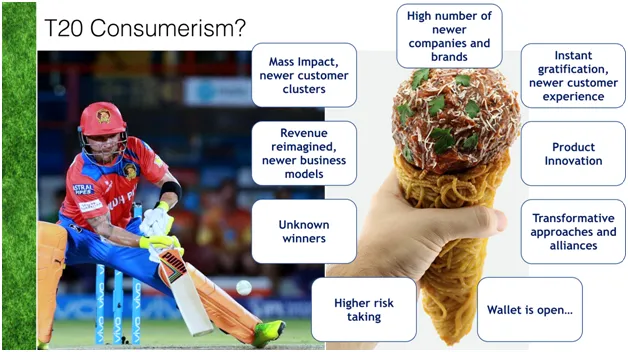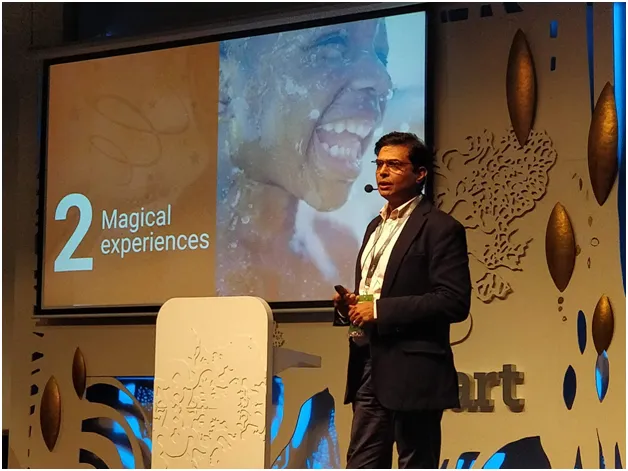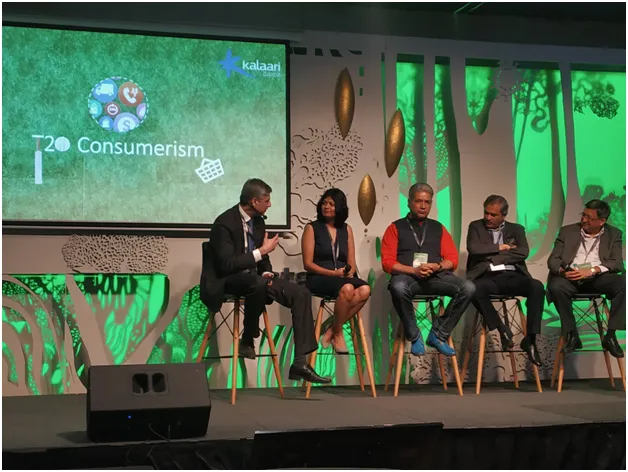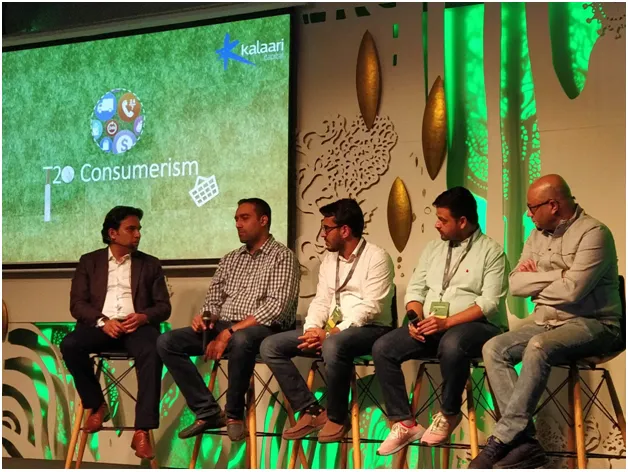14 ways Indian audiences are re-imagining consumer brands of the future
How does a country like India straddle its ancient spiritual wisdom and modern consumerist aspirations?
For far too long consumerism in a spiritual nation like India has had an uneasy narrative to follow. However, today, thanks to various success stories, including those via Indian spiritual leaders, we are showing the world that one's spiritual inclinations can definitely co-exist with the desire to pursue comfortable lifestyles, as well as in building, purchasing, and promoting newer brands.
Supported by recent trends in rising household incomes, India’s rural consumption is growing faster than its urban counterparts, and India’s FMCG sector is expected to cross $100 billion by 2020. Just as T20 cricket can coexist with the purest form of cricket, so can modern consumerism with the great traditions of spirituality.
Below are some of my learnings from Kalaari Capital’s ‘T20 Consumerism: Reimaging Consumer Brands for Future’ summit. The event brought together 150+ consumer brands, start-ups, ecosystem enablers, brand specialists, corporate CEOs and investors with the objective of ensuring cross-pollination for brand insights as well as inspiration from the doers.
What is T20 Consumerism?

Are we T20 Consumers?
According to Sreedhar Prasad, Venture Partner at Kalaari Captial, who coined the term ‘T20 Consumerism’, the wide Indian Consumer Class dons many hats while connecting to brands. They are digitally influenced consumers with a smartphone, a wallet to spend, and an intent to try new brands for their multiple needs.
Moonshot thinking - Products showcased in TV series from the sixties, like Star Trek and Jetsons - tablet computers, driverless vehicles, AI-based voice activations, and virtual reality devices are now a reality. Nothing stops innovators from bringing to life more such products, and in consumers expecting them.
Change before you have to - Google India’s Vikas Agnihotri believes today’s millennial generation have a healthy disregard for doing what might have seemed impossible for many, and therefore it was critical from brands to be early adopters of change.
The mobile revolution is on - With 380 million Indians currently on smartphones, a monthly data usage of 8GB per subscriber, and 75 percent of all mobile traffic being on online videos, the mobile numbers have been and will continue to surge rapidly across India.

Magical experiences matter - Today's empowered consumer’ is iImpatient, demanding, and curious. According to Google, 61 percent of these consumers expect various brands to tailor experiences based on their preferences.
From insight to foresight -
Companies like Google shared their knowledge with the Indian government and helped them decide where to build their next 100 airports in India. The same sort of learnings have also helped commercial establishments decide where to set up shops.
Leveraging deep technology - Brands are increasingly taking advantage of latest technologies and talent in deep tech like machine learning and artificial intelligence to find solutions to everyday problems.
Reaching more people - Brands like IKEA essentially aim to engage the large segment of population that have big dreams and small wallets. Brands will do well to find their core audience segment after understanding their consumer aspirations better.

Decision-making in now local -
Peter Betzel of IKEA India shared how the company follows the culture of giving priority to local decision-making, and keeping in mind each region’s unique culture, habits and behavioural traits.
The ‘me’ mindset - Today, a large number of consumers, even though they may belong to the same family, give more prominence to their own individual tastes and interests. Hence these members tend to make dissimilar brand choices as compared to their previous generation.
Brands into problem-solving - Companies are proactively moving from a linear to a more multidimensional way of thinking - which is essentially thinking about addressing problems from multiple angles, and keeping in mind different points of views.

Moving from sellers to buyers market - Ex-Shoppers Stop MD Govind Shrikhande not only believes we are moving to a buyers market but also that businesses should move with greater velocity - with speed, direction, acceleration (or deceleration when needed) and discipline.
The power of the smartphone - Theresa Ronnie of FCB Ulka tweaked David Ogilvy’s earlier quote ‘the consumer is not an idiot, she is your wife’ into ‘the consumer is not an idiot, she also has a smartphone’.
Creating an offline feel - Wipro Consumer Care’s Vineet Agrawal felt more digital-first brands needed to offer better offline experiences and further increase product quality. Something that brands like Urban Ladder have managed to do really well.
Advert of young brand leaders - Samar Shekhawat, ex-United Breweries, trusts today’s young leaders will succeed by learning the art of staying humble and grounded, citing the example of entrepreneurial leaders like Ritesh Agarwal of OYO Rooms.
In conclusion, I truly believe India’s millennials, who are now privy to both ‘T20 consumerism’ and rediscovering their spiritual legacy, will set the tone for the future of brands - those that would be environment-friendly, obsessed over their customer experiences and impact-focused - including contributing to lift millions of people out of poverty.
How would you like to see your consumer brands of the future?
(Disclaimer: The views and opinions expressed in this article are those of the author and do not necessarily reflect the views of YourStory.)







